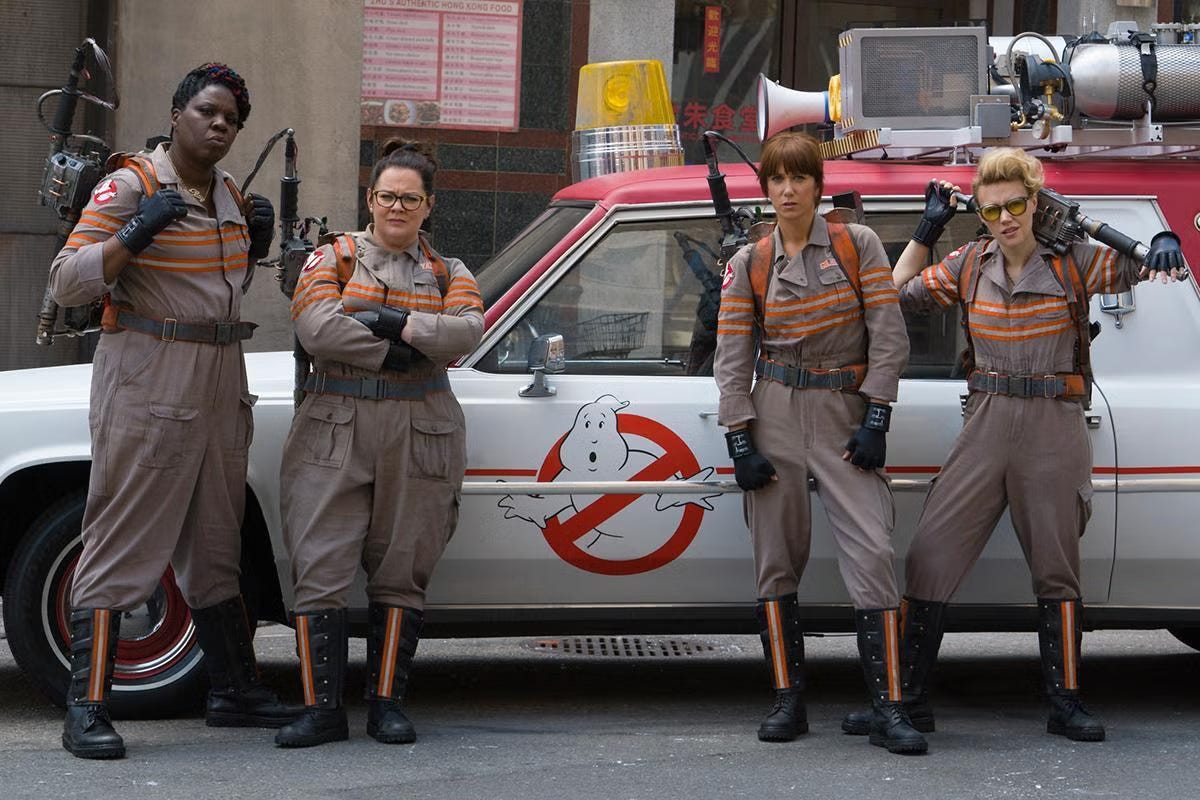What the Right Gets Wrong About Capitalism
There's no such thing as Woke Capital. There is only Capital.
Most countries have some sort of national day—one day on the calendar when it’s customary to just celebrate the fact that a particular piece of dirt has a particular name. Maybe it’s the day some treaty was signed, or some battle won. Often it’s an excuse to take your shirt off, cook meat outside, and explode something.
Today, January 26, is Australia Day. Its celebration is controversial because rather than commemorating federation or something else that would make sense to signify nationhood and unity, it’s taken as the date British settlers planted the flag on the beach that would later be called Sydney. It is a colonial anniversary. The indigenous people were not, at the time, part of it.
Every year there is a conversation about whether it’s actually cool to keep celebrating this particular event on this particular day as our National Day—and there’s a lot to be said about that. Like, it’s not even the date that the British discovered the continent, and it’s not the date that we became a country, which didn’t happen until 1901. Rather, January 26, 1788, is the day that a ship sailed in from England and dumped a whole bunch of white criminals and poor people on the beach. And the only reason they were here at all is because around ten years earlier Britain suddenly lost its ability to dump all its prisoners and poor people in North America for reasons that won’t take a history degree to figure out.
Nevertheless. The penal colony origin story of Australia that Americans mock us relentlessly for has become something of an odd badge of honour, so Australian patriots can be extremely touchy about this controversy—plus, and this is key, caring about the sensitivities of indigenous people is, unfortunately, Woke.
Australia has not escaped the hysteria over Woke. Despite the fact that our politicians are usually fiercely, to the point of cringe, protective of Australiana and against foreign seppo bullshit like Halloween, they can nevertheless be trusted to import a conservative moral panic about three seconds after an American Republican comes up with it.
This piece isn’t about that debate, but about another controversy that sprang out of it. This year, the supermarket chain Woolworths decided that it would not sell Australia day merchandise and paraphernalia. The tacky and frequently foreign manufactured flags, beer coolers, straw hats and novelty inflatable thongs (note to Americans: These are what we call sandals, not what you’re thinking) necessary to signify affection for one’s country for a single day before heading off to landfill did not adorn the shelves of Woolies this January.
This was, of course, a national disgrace. Peter Dutton, the leader of the nation’s conservative party and prospective Prime Minister, who incidentally looks exactly like an even paler, smoother Voldemort with roughly equivalent politics, called for a national boycott of the supermarket, claiming that they were working against the national interest.
As a result, stores have been vandalised and the controversy has risen to the level of a national scandal. This guy who runs a competing supermarket called Drakes thinks this is just absolutely not on, as evidenced by his stern crossed-arms pose and his denunciation of “Wokeworths” which he will probably maintain until the day he dies is the wittiest thing he’s ever come out with.
But why has Woolworths supermarket opted to betray the country with such radical far left posturing? Do they hate Australia or want to exterminate white people due to the woke mind virus the globalists put in the Covid masks?
No, it turns out the stuff just doesn’t sell. Also, the Woolworths chain, whose logo is a W cleverly shaped like a lettuce, primarily focuses on food and produce. People just don’t rush to the local big box meat and veg megastore to pick up a vuvuzula with the Southern Cross and Union Jack on it. Not only does the store need to take a loss on the merch they don’t sell, but they also lose the valuable retail space.
But the fact that people don’t want to actually buy this junk is beside the point. They want to see that it’s there. It’s the very definition of a virtue signal, not the version of the term conservatives snidely throw at anyone who says something that isn’t racist. It’s a lighthouse lamp that has to stay on all the time because people are afraid if it goes out it means someone got infected by the woke mind virus.
What the right often gets wrong about capitalism is they feel they have a reciprocal relationship with it. Backlash occurs, of course, all over the political landscape whenever some particular corporation seems to endorse some political or social issue or take some side on something, but on the left it comes from a place of expectation. We’re upset when a candy company wipes out the orangutans to harvest palm oil to make the chocolate picked by slaves and cooked in the water they acquired by diverting a river away from a town now stricken by dysentery and malaria from the filthy wells they had to dig, but it’s not unexpected or shocking that they do this. So-called “rainbow capitalism,” like making an M&M mascot gay, is generally known to be just something that companies do to try to cover themselves for all that—like covering the roach turds on your pizza with pepperoni slices.
But when a company does something that’s perceived to be progressive, or even just misses an opportunity to throw right wing politics a bone about something, the reaction by the right isn’t just disappointment, but visceral betrayal. Like capitalism itself broke some kind of social contract it had to outwardly project conservative values like colonialism and traditional expressions of national pride via cheap plastic knick-knacks.
Taking a simplistic definition of what “left” and “right” actually mean economically, the phrase “capitalism is right wing” is kind of like saying “water is wet” or “oxygen is flammable”—it’s not just descriptive but requisite. The free market, though, which most political conservatives and libertarians hinge their entire worldview on, doesn’t have this necessary provision that it will reinforce certain social views or otherwise. It doesn’t ask John Wayne’s ghost for permission to make a consensual transaction between two parties.
But this is the rhetorical trick that the right always pulls when it defers to free market capitalism as their preferred system of economics—ideal, meritocratic, self-sustaining, self-correcting, and reflective of the will of the people. The snide mantra of “go woke, go broke” is supposed to be just a truism. In reality it’s neither true nor false. The success of a product or service very, very rarely hinges entirely on how woke it supposedly is, and even when it does, its success or failure mostly just depends on the consumer’s mood. Go woke or don’t, either way the first rule is to read the room.
The thing about free market acolytes on the right is that they don’t really see capitalism as being the overarching economic structure that holds up society. They see it as their leashed dragon. It rules supreme over society but it serves and answers to them.
The dragon’s job is to bully away or destroy minority views, socialist economic concepts, and rivals to structural power such as that of government. The right feeds it oil and orangutans and expects it to serve their interests. And when their interests align, everything is cool. It gives them the illusion that their interests align all the time and that this is because the dragon is obedient. When the dragon eats the all-women Ghostbusters movie it’s because it was told to rather than because it was just a bad movie all round.
The dragon doesn’t actually serve the right, though. It doesn’t serve the left. It’s a beast, it serves itself. It eats and shits. It defends itself from rivals but it’s not tame or caged. The illusion that it is is what leads to the panic and outrage and sense of actual betrayal felt by the right when it doesn’t behave as expected.
When the dragon misbehaves it needs to be corrected. This was very well illustrated by the great Bud Light Dylan Mulvaney fiasco. If you’re unfamiliar with the details, in April of last year, the Budweiser beer company sent a single personalised can of Bud Light to Mulvaney, a transgender influencer, to help promote its branding partnership with the March Madness basketball championship. That is literally all that was about. But the right reacted as though the company had committed an actual criminal offense.
Citing their ideas of what the characteristic consumer of beer looks like, their politics, and their social stances, the right laid out its rules about what kind of people are allowed to buy beer and thus what kind of people companies are allowed to sell beer to. The dragon was supposed to eat Dylan Mulvaney. The mass boycotts organised by conservative pundits, Fox News, and what passes for right wing celebrities (such as the porch Jack-o-Lantern left out until January that is Kid Rock) were not based on any real or implied wrongdoing by Budweiser except for the idea that they had violated the rule that there are entire classes of people that capitalism is supposed to bind but never cater to.
The dragon was just following its instincts, though. That is to say, capitalism was doing what it’s ostensibly supposed to do, which is seek profit and money above all other concerns, including the ethical and political. It wasn’t supporting transgender people any more than it was supporting truck nuts. It was trying to sell beer to people who might not otherwise buy beer, and also generally spread the word about Beer and catch people who aren’t thinking about Beer right now and asking if they have considered Beer. Lashing out at them for that is like striking a dog for doing exactly what you just told it to do. You’re not teaching it anything, you’re just making it confused and angry.
Consider Ron DeSantis’ ill-advised war on Disney and how baffling and suicidal that whole thing was. That dragon might have mouse ears but it’s still one of the clearest examples we have of capitalism as an all-consuming evil kaiju feasting eternally on the corpse of western culture, tradition, and artistic integrity. Disney is a monolith of Americana. But DeSantis, backed as he thought he was by the morally concerned parents of conservative tradition, ordered it to take and project a clear blanket stance in opposition to homosexuality. When it didn’t, he did what free market conservatives are supposed to strongly oppose—he used the machinery of the state to attempt to punish and control it. He struck the dragon, made it confused and angry, and it turned on him.
Don’t get me wrong—I don’t think that DeSantis’ actions against Disney were all bad. He stripped Disney World of special above-the-law protections that it enjoyed, which I strongly oppose companies having. But the reason he did it betrays a powerful misconception that people in his position have about what capitalism is and does.
I should make it clear that my argument is not in favour of capitalism or opposed to efforts to leash it. I only want to highlight and expose the lie that conservatives aren’t also in favour of restraining capitalism. The high ground they attempt to achieve by posturing as free market idealists is based on a fiction. Where we differ is what they feel capitalism should be punished for.
Take for example the bizarre controversy of the M&M mascots. The M&M brand struck a bit of marketing gold and earned themselves a slice of the Americana pie with their advertisements featuring sapient M&Ms voiced by J Jonah Jameson and Fry from Futurama. But they eventually got a bit cocky and started adding characters to the lore that seemed a bit too spicy for the Fox News crowd. Right wing pundits were suspicious that the orange one might be autistic and the purple one might be trans. The brown one was fat and probably African American and maybe in a lesbian relationship with the green one—who, infamously, Tucker Carlson was angry about not being fuckable enough.
The company responded with a marketing stunt involving temporarily replacing the characters with comedian Maya Rudolph, which may have been to take the heat off or it might have been straight-up taking the piss out of the critics, but in either case the dragon was just acting confused and angry at being attacked by conservatives for the friendly mask of social acceptability they were using to cover the fact that Mars, the parent company, is one of the most evil companies on the planet.
But the right doesn’t care about any of that. They care about an unsexy, possibly gay M&M.
In the case of Woolworth’s, I think it’s insane for them to be reprimanded for stocking what is seen to be an insufficient amount of plastic flag-printed shit. Because Woolworths is currently under severe scrutiny for their price fixing activities—an evil capitalistic practice that is driving the cost of living for Australians through the roof even further during a crisis of inflation. An investigation being driven by the left of politics that the right loves to push aside and discredit specifically because it is being driven by the left of politics, as well as being the kind of behaviour that the dragon is supposed to be engaged in. It’s all fair market strategy—until the inflatable thongs fail to appear.















Excellent as always, and I didn't realise you were Aussie!
Incidentally the biggest "advantage" to Woolies and Coles' relentless price-gauging is that there no longer any cheaper than the totally Boujis local supermarket near my house, which has way better produce and products. Look, I'm super lucky that I can afford that, but the fact that I can go to a luxury, Trader Joe's style market, get better product, *and not pay any more money* is comical.
Also, I enjoyed your Peter Dutton description. Mine would be: "Peter Dutton looks like Voldemort's little brother who couldn't get in to Hogwart's and had to go to the crappier private Wizarding school, which big V never ceases to give him shit about at family gatherings."
One of the major theme's of Brad DeLong's recent book (_Slouching Towards Utopia_) is that capitalism generates massive amounts of *change* which often conflicts with the desires to maintain stable communities (and hierarchies). See, for example: https://braddelong.substack.com/p/in-the-generations-after-1870-all
"And so over 1870-2010, repeated technological and economic revolutions shook, and shook, and shook the human world to pieces over and over again, and then people had to try to pick the pieces up and assemble them into something over and over again.
That was very different than all previous history."